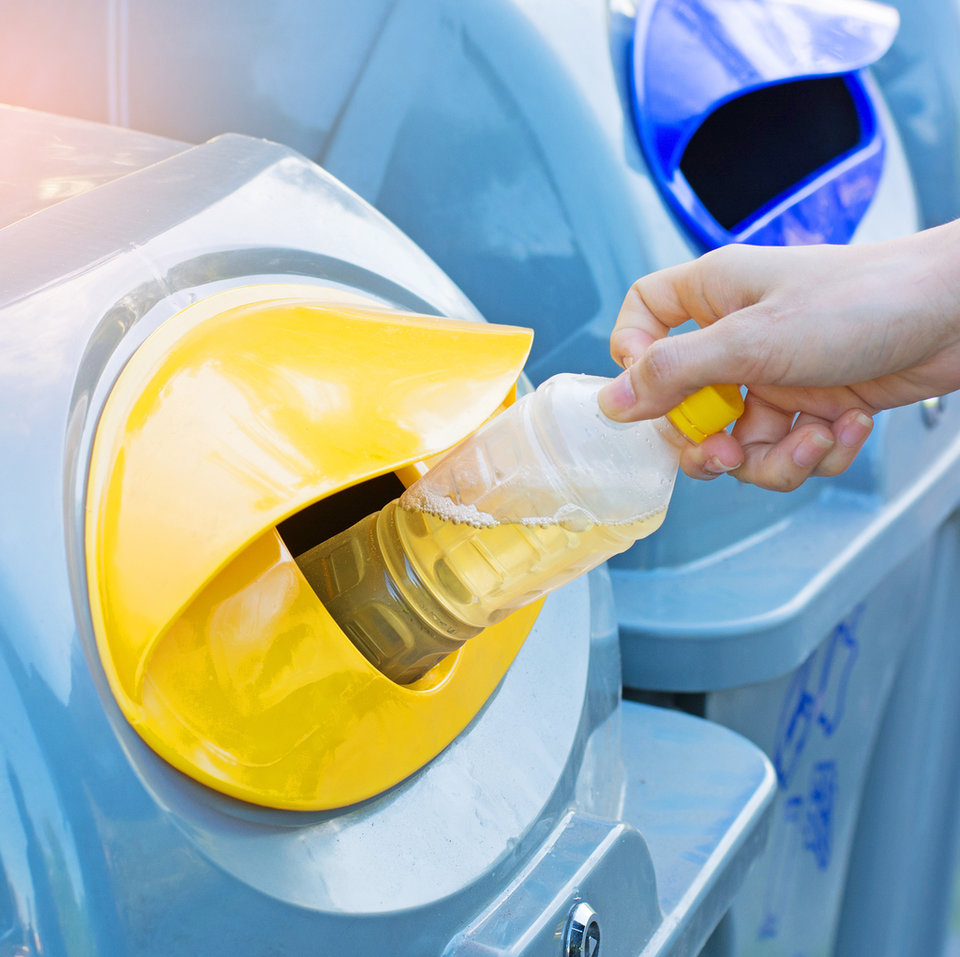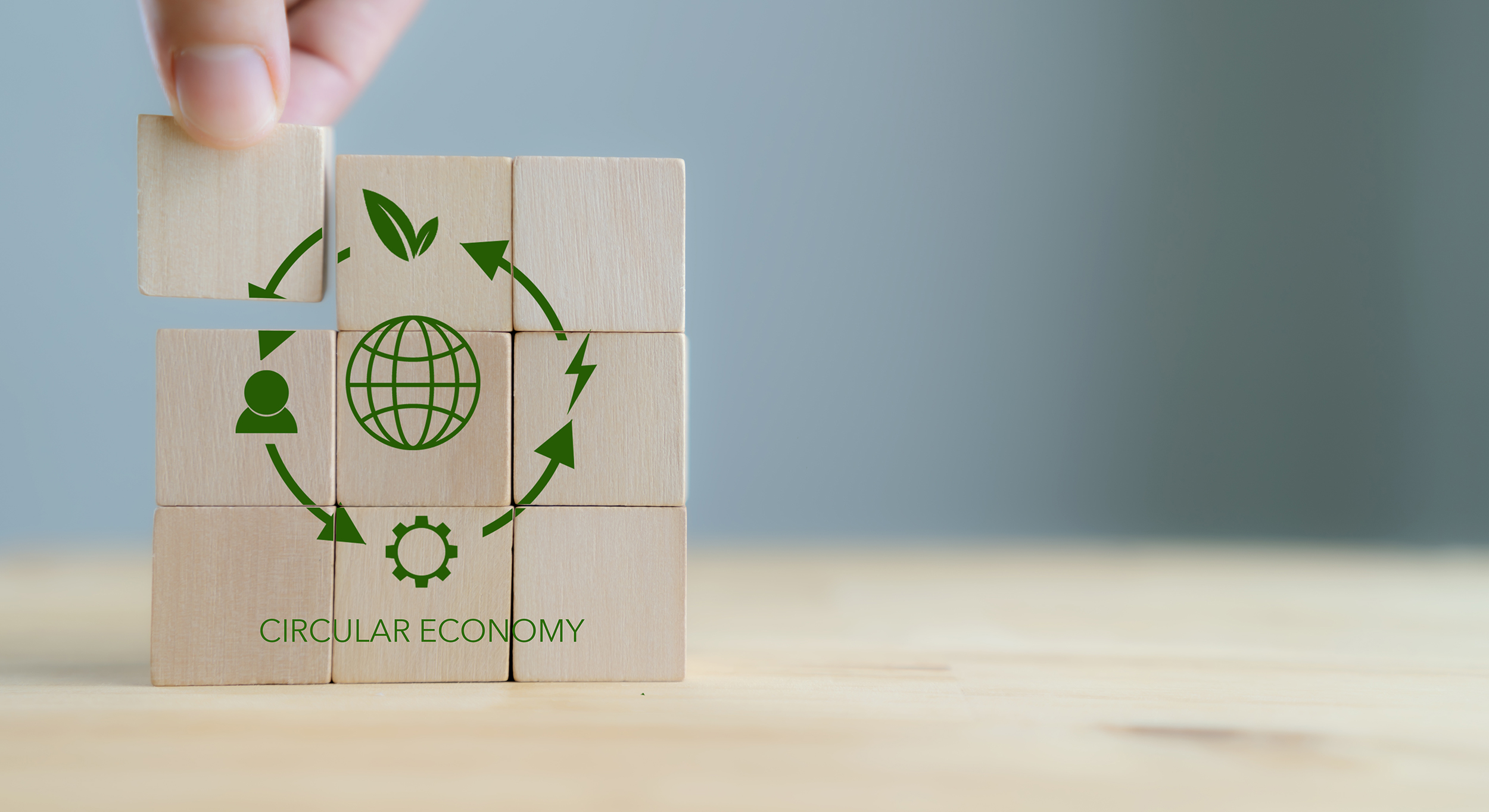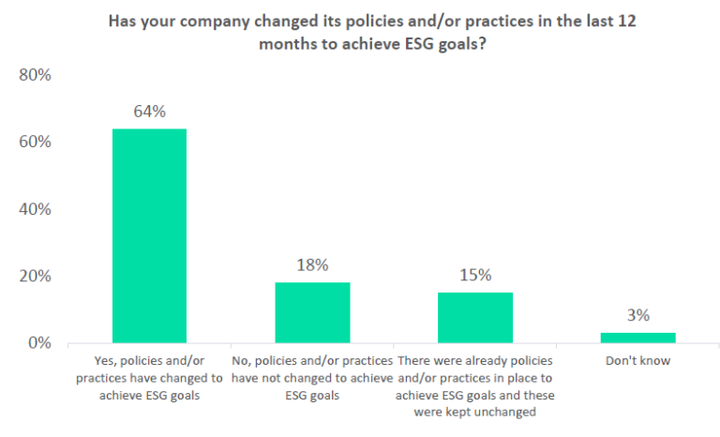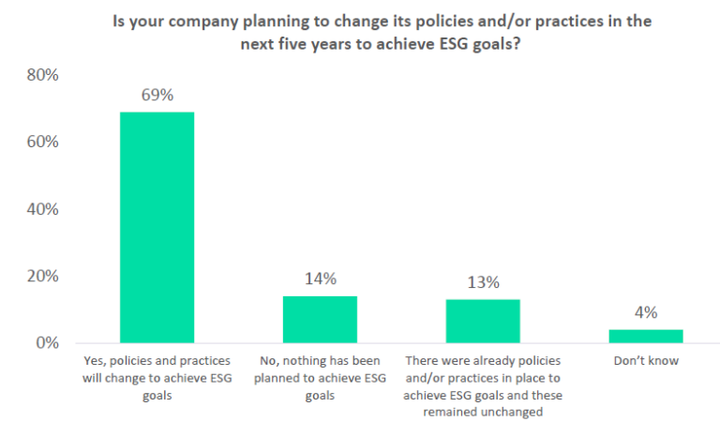ESG
How are circular platforms helping the packaging sector achieve ESG targets?
Inside Packaging’s Ryan Ellington investigates why businesses are turning to circular recycling models in a bid to reach sustainability targets.


E
nvironmental, Social & Governance (ESG) issues are in the spotlight as we look towards a world beyond-COVID-19 and offering sustainable packaging solutions is arguably more important than ever. A recent report by GlobalData, ‘ESG Strategy Survey 2021,’ highlights that while COVID is still front of mind for most businesses, ESG will be the driving force behind future decision making.
The report’s findings are based on an online survey that was conducted in October and features responses from 1,500 ESG executives and influential ESG leaders from organisations in 24 countries. It lists packaging as the sector most aware of its impact in terms of ESG out of a total of 20 different industries.
A number of companies, including waste-free shopping platform Loopand coffee company Starbucks, are already making an effort to reduce waste worldwide with their forward-thinking returnable and reuse schemes.
E-commerce, the environment and sustainable packaging
Before COVID took hold, the e-commerce channel was already experiencing exponential growth. In the US, for example, the B2B e-commerce market grew from US$399bn in 2010 to $2.2tn in 2020, according to GlobalData.
The convenience of q-commerce (quick commerce) and s-commerce (social commerce) during COVID-enforced lockdowns has also contributed to the growth of e-commerce. The growing number of internet users has been key to its growth, with worldwide users recorded at 4.5bn in 2020, compared to 847m in 2010.
A rise in e-commerce sales, however, has driven a marked increase in packaging waste, thereby reinforcing the need for companies to set their sights on ESG targets. GlobalData’s ESG Strategy Survey 2021 suggests most businesses expect COVID and ESG to dominate their attention over the next 12 months, with 69% of those surveyed citing COVID as having the biggest impact. The report also finds that 57% believe ESG will have a significant impact on their business, which highlights that the majority of companies worldwide still see these themes as existential threats.
The pandemic has focused minds and accelerated action: Of those surveyed, 67% said the pandemic had acted as a catalyst for increased focus and action on ESG issues. The importance of ESG is shared across 20 sectors featured in the survey, which range from apparel and food service to construction and manufacturing. The majority (91%) feel there should be targets in place to meet ESG goals, whilst 65% said that ESG should be very important in decision making.
“The reluctance of many CEOs to fully engage with sustainability can be attributed to the age-old view that it will hurt profits,” explains GlobalData’s head of thematic research, Cyrus Mewawalla. “However, our research suggests the opposite. Companies that embrace all three elements of ESG will outperform their peers. CEOs that are too slow to improve their company’s approach to sustainability will see an exodus of customers and a drop in profits far sooner than they ever imagined.”
The research also shows that consumers are loyal to brands that support green/environmental matters. Most companies have made changes to meet ESG goals and many more are working on ways in which they can increase their positive impact on the environment.


Action is being taken across all industries, with 64% having already changed their policies and/or practices within the last 12 months, and 69% planning to do so within the next five years. This proves, then, that ESG is vital for future business decisions. The report also highlights that 86% of companies globally, across all sectors, believe ESG principles have played a major role in their investment decisions. In packaging, specifically, the figure was even higher, at 96%.
While all three ESG factors are crucial, the ever-present threat of climate change thrusts ‘environment’ into the top spot as the factor that matters most to ESG professionals in terms of increased investment. Overall, 69% of respondents said the environment is the most important ESG factor for their sector; for packaging, this increased to 70%. With pressure coming from all corners - customers, investors and governments - the onus is on businesses to make forward-thinking moves, particularly within the packaging industry. Sustainability and everything associated with it, such as circularity or closed-loop systems, are buzzwords in packaging and there is an enormous amount of effort being made to reach global targets and create sustainable packaging alternatives.
The packaging industry is constantly on the lookout for viable alternatives to plastic, particularly single-use plastics, with many companies turning to other materials such as paper and hemp. Meanwhile, others are opting for circular models such as those run by reuse company Loop.
Circular economy success stories
Loop launched in 2019 under the Terracycle umbrella of companies with the central mission of protecting the planet. The concept centres around a circular platform that shifts consumer goods packaging away from single-use disposables and towards reusable designs. By partnering with big retailers and brand owners such as Walgreens, Tesco, Walmart, Heinz, Coca-Cola and Unilever, Loop has been able to capitalise on consumers’ hygiene priorities as well as their concerns over packaging sustainability when the pandemic started.
A recent case study conducted by GlobalData on Loop’s success at eliminating waste with reusable and returnable packaging suggests almost three-quarters (72%) of global consumers say that ‘hygienic’ packaging is ‘quite’ or ‘extremely important’. At the same time, almost two thirds (65%) say reusability is 'quite’ or 'extremely important’ in a product.
“Consumers are being more vocal about their request for brands and retailers to make sustainable changes,” says Loop’s head of communications for Europe, Stephen Clarke. “One benefit of Loop for brands is to be able to test Loop’s model and durable packaging in a select number of stores and restaurants to fine-tune it before it is scaled. In the upstream phase of the project, Loop assists brands in the development of sustainable and reusable packaging.”
The programme works by charging the consumer a ‘packaging deposit’ for each product purchased, which is then credited to their Loop account and deducted from future purchases of Loop-associated products. Loop has enabled this service in six countries US, Canada, the UK, France, Japan and Australia with online collection and in-store deposit services.
“Loop’s aim is to reduce waste and to provide a solution to the waste crisis,” Clarke continues. “Today the vast majority of products come in single-use packages and much of that packaging is in a form that isn’t accepted in municipal services for a variety of reasons. It’s essential that the most consumed products in the world today have a solution to reduce their impact on waste and the environment, thus turning to a positive approach. For that purpose, Loop’s reuse scheme is beneficial for brands in the sense it supports them in this move towards sustainable solutions.”
Loop isn't the only company pushing a circular notion of reusing packaging. Organisations such as Starbucks, health & beauty retailer Boots and craft spirits company Dunnet Bay Distillers have actively made steps to incorporate circularity into their processes.
In 2019, Boots trialled a Deposit Return Scheme (DRS) in Scotland before rolling it out across the UK. The nationwide programme encourages consumers to return their empty packaging that cannot be easily recycled from home in exchange for loyalty card points. More recently, in February, Starbucks launched its first returnable cup pilot in selected UK stores. The company aims to implement the scheme in around 4,000 outlets as part of its commitment to cut the waste it generates by half by 2030.
Dunnet Bay Distillers, meanwhile, has introduced circularity by packaging its Rock Rose Gin into recyclable pouches. Driven by the company's aim to reduce its environmental footprint, the empty plastic pouches can be returned through the post, ensuring they are upcycled into new products as part of a sustainable circular system.
The future for sustainable packaging
As COVID fears begin to ease, e-commerce is still set to continue its growth worldwide and packaging sustainability will sit in the spotlight as the target dates for various ESG targets edge ever closer.
The pressure is on companies to ensure they meet their targets, but they would do well to continue researching, evaluating and sourcing viable alternatives. Closed-loop systems are becoming of increasing interest as some no longer see pulp-based solutions as credible options for their business models.
Consumers care massively about the environment, while convenience also plays a big part in their decision making. Companies that extend their services to circular models and engage even further in green practices will reap the benefits going forwards.
For more details on GlobalData’s ‘ESG Strategy Survey 2021’, click here.